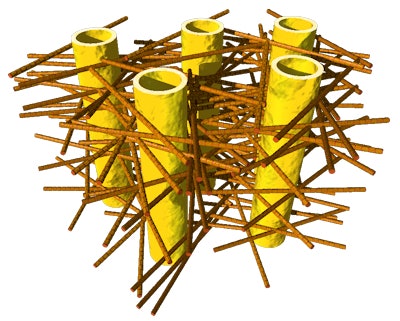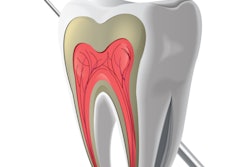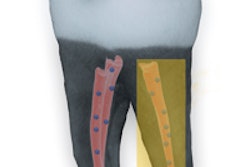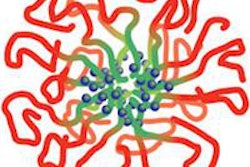
A team of international researchers has discovered that the structure of dentin works to protect against cracks and increases the resistance of teeth in a new study in the journal Nano Letters (May 2015, Vol. 15:6, pp. 3729-3734).
The interdisciplinary team, led by German scientists from Charité -- Universitätsmedizin Berlin, examined the mineral nanoparticles that form dentin. They performed in-situ stress experiments on the biostructures and analyzed the local orientation of the mineral nanoparticles at two different labs.
Researchers found that when the fibers composed of nanoparticles shrunk, the attached mineral particles became increasingly compressed, preventing cracks from propagating through the tooth.
 Illustration of the complex biostructure of dentin: The dental tubuli (yellow hollow cylinders, approximately 1 µm in diameter) are surrounded by layers of mineralized collagen fibers (brown rods). The tiny mineral nanoparticles are embedded in the mesh of collagen fibers and not visible here. Image courtesy of JB Forien at Charité.
Illustration of the complex biostructure of dentin: The dental tubuli (yellow hollow cylinders, approximately 1 µm in diameter) are surrounded by layers of mineralized collagen fibers (brown rods). The tiny mineral nanoparticles are embedded in the mesh of collagen fibers and not visible here. Image courtesy of JB Forien at Charité."The compressed state helps to prevents cracks from developing, and we found that compression takes place in such a way that cracks cannot easily reach the tooth inner parts, which could damage the sensitive pulp," stated study author Paul Zaslansky, Dr. med. dent., PhD, a researcher at Charité Berlin, in a press release. "Our results might inspire the development of tougher ceramic structures for tooth repair or replacement."



















